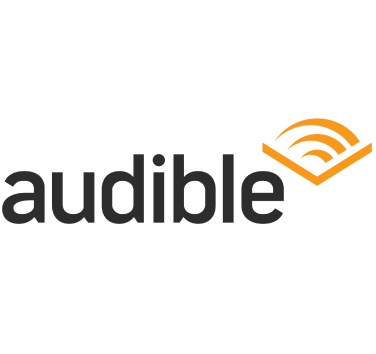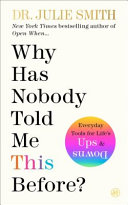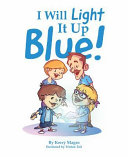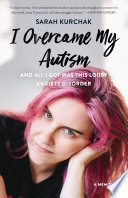Embrace a life of neurodiversity with these 20 best books for adults with autism. Learn coping strategies, therapies, and acceptance with these on your list.
Living life as an autistic adult can be challenging. As more and more knowledge about this type of neurodiversity, books are coming to market to help people understand the condition and how to live life with it. If you are an adult with autism or have one in your life, these 20 books are must-read options for your bookshelf.
For more recommendations, you might also enjoy exploring authors like Tom Clancy, best thriller authors, authors like Vince Flynn.
Table of Contents
Open Table of Contents
- Book Recommendations for Autistic Adults
- 1. Thinking in Pictures: My Life with Autism by Temple Grandin
- 2. Why Has Nobody Told Me This Before by Dr. Julie Smith
- 3. Autistics on Autism by Kerry Magro
- 4. I Overcame My Autism and All I Got Was This Lousy Anxiety Disorder by Sarah Kurchak
- 5. Autism in Heels: The Untold Story of a Female Life on the Spectrum by Jennifer Cook O’Toole
- 6. The Reason I Jump: The Inner Voice of a Thirteen-Year-Old Boy with Autism by Naoki Higashida
- 7. Be Different: My Adventures with Asperger’s and My Advice for Fellow Aspergians, Misfits, Families and Teachers by John Elder Robison
- 8. Think I Might Be Autistic: A Guide to Autism Spectrum Disorder Diagnosis and Self-Discovery for Adults by Cynthia Kim
- 9. NeuroTribes: The Legacy of Autism and the Future of Neurodiversity by Steve Silberman
- 10. The Complete Guide to Asperger’s Syndrome by Tony Attwood
- 11. Uniquely Human: A Different Way of Seeing Autism by Dr. Barry M. Prizant
- 12. Living Well on the Spectrum: How to Use Your Strengths to Meet the Challenges of Asperger Syndrome/High Functioning Autism by Valerie L. Gaus
- 13. Asperger’s and Adulthood: A Guide to Working, Loving, and Living with Asperger’s Syndrome by Blythe Grossberg
- 14. Life Coaching for Adults on the Autism Spectrum by John Elder Robison
- 15. Autism Adulthood: Insights and Creative Strategies for a Fulfilling Life by Susan Senator
- 16. Aspergirls: Empowering Females with Asperger Syndrome by Rudy Simone
- 17. In a Different Key: The Story of Autism by John Donvan and Caren Zucker
- 18. Love and Asperger’s by Kate McNulty
- 19. The Guide to Good Mental Health on the Autism Spectrum by Jeanette Purkis and Emma Goodall
- 20. I Am Autistic: A Workbook: Sensory Tools, and Interactive Journaling for Understanding Life with Autism by Chanelle Moriah
Book Recommendations for Autistic Adults
1. Thinking in Pictures: My Life with Autism by Temple Grandin
Thinking in Pictures: Grandin’s memoir on autism and design.
One of the best-known writers and advocates for people with autism, Dr. Temple Grandin, shares her story in her own words in Thinking in Pictures. It is a fascinating look at what it is like to live with autism, the coping strategies an autistic adult uses to fit in, and the way her autistic mind helped her in her work designing livestock equipment.
This memoir is a fascinating look into the mind of an autistic woman, making it one of the most popular autism books on the market.
“I think in pictures. Words are like a second language to me. I translate both spoken and written words into full-color movies, complete with sound, which run like a VCR tape in my head.”
Temple Grandin, Thinking in Pictures
2. Why Has Nobody Told Me This Before by Dr. Julie Smith
Why Has Nobody Told Me This Before?: A guide for resilience and mental health in autism.
*Why Has Nobody Told Me This Before?*is a handbook for adults looking to build resilience and support good mental health while living with autism. It is a practical guide designed as a toolkit to apply the things learned in therapy in everyday life situations. It also advises battling low moods and positively dealing with negative thought patterns.
“How we think is not the whole picture. Everything we do and don’t do influences our mood too.”
Dr. Julie Smith, Why Has Nobody Told Me This Before?
3. Autistics on Autism by Kerry Magro
Autistics on Autism: Magro’s guide for caregivers and neurodiverse families.
Autistics on Autism is a guide written for caregivers. It provides first-person stories about adults with autism and what helped them as children. Though it is written primarily for parents, adults living with autism may learn practical coping strategies to help them. It will also help adults who are raising neurodiverse children of their own. The author, Dr. Kerry Magro, is an autistic adult and is known for her advocacy with families who have neurodiverse family members.
“Movies unlocked my future. It may sound cliche, but without the emotional support of the visual medium of cinema, I probably would not be motivated to attend college.”
Dr. Kerry Magro, Autistics on Autism
4. I Overcame My Autism and All I Got Was This Lousy Anxiety Disorder by Sarah Kurchak
I Overcame My Autism: Kurchak’s journey through anxiety, depression, and masking.
Author Sarah Kurchak is an autistic adult who has become what she calls an “Autism Success Story.” Yet she recognizes the major effort necessary to do so, especially when she went undiagnosed as a child. She is using her *I Overcame My Autism*to shed light on the co-morbid issues of anxiety and depression that often come from being autistic and trying to mask herself as a neurotypical individual.
If you enjoyed our round-up of the best books for adults with autism, we have many more educational articles you can check out. You might want to check out our list of the best books for adults with ADHD)!
“It’s not like, as the term “masking” seems to evoke, there’s a superficial layer of actions and appearances that I can remove and instantly improve my life. I don’t have a mask I can remove; I have a multiheaded, deeply embedded parasite. It’s probably killing me, but it’s also kept me alive, and I don’t know how much I can remove and still survive.”
Sarah Kurhcak, I Overcame My Autism
5. Autism in Heels: The Untold Story of a Female Life on the Spectrum by Jennifer Cook O’Toole
Autism in Heels: O’Toole’s memoir on the female experience of autism.
Autism in Heels*is a memoir that explores what life is like for women with autism. Diagnosed at age 45, Author Jennifer Cook O’Toole shows through personal stories why many females with autism do not get diagnosed due to the different ways the condition manifests for different genders. It is an inspiring story that will encourage other autistic women to embrace their true selves.
“And maybe, just maybe, I’d be able to build an authentic, curious, passionate life on the beautifully atypical Belle Curve.”
Jennifer Cook O’Toole, Autism in Heels
6. The Reason I Jump: The Inner Voice of a Thirteen-Year-Old Boy with Autism by Naoki Higashida
The Reason I Jump: Higashida’s insight into the autistic mind.
Naoki Higashida was a 13-year-old with autism when he wrote The Reason I Jump. This fascinating look at what goes on inside the autistic mind will help many people understand their autistic loved ones. Autistic adults will appreciate getting a first-hand narrative they can use to voice what they are experiencing. In this book, Higashida answers common questions about autism, such as “what’s the reason you jump?”
“When you see an object, it seems that you see it as an entire thing first, and only afterwards do its details follow on. But for people with autism, the details jump straight out at us first of all, and then only gradually, detail by detail, does the whole image float up into focus.”
Naoki Higashida, The Reason I Jump
7. Be Different: My Adventures with Asperger’s and My Advice for Fellow Aspergians, Misfits, Families and Teachers by John Elder Robison
Be Different: Robison’s guide for those with Asperger syndrome and high-functioning autism.
Be Different is written for people with Asperger syndrome or high-functioning autism.Be Differentshares John Elder Robison’s stories from his childhood, giving insight into how he learned to cope while living undiagnosed. For people with autism and anyone who feels a little different, he gives practical advice on improving communication and social skills to reach one’s full potential.
“It does not matter what sixty-six percent of people do in any particular situation. All that matters is what you do.”
John Elder Robison, Be Different
8. Think I Might Be Autistic: A Guide to Autism Spectrum Disorder Diagnosis and Self-Discovery for Adults by Cynthia Kim
I Think I Might Be Autistic: Kim’s guide to self-discovery and managing an autism diagnosis.
In I Think I Might Be Autistic, Cynthia Kim explores the idea that people who feel weird, shy, or introverted may, in fact, be autistic. HSe provides a practical guide to self-discovery for adults who may be on the spectrum, including how to get tested and manage a new diagnosis. She even includes a guide on whether or not to share a diagnosis and who to share it with.
“Bizarrely, my biggest fear was that the tests would prove I didn’t have Asperger’s or that the psychologist would think I wasn’t autistic enough to merit a diagnosis. Then I’d be back to having no explanation for all the atypical things about me.”
Cynthia Kim, I Think I Might Be Autistic
9. NeuroTribes: The Legacy of Autism and the Future of Neurodiversity by Steve Silberman
NeuroTribes: Silberman’s history of autism and strategies for embracing neurodiversity.
Autistic people have faced significant challenges throughout history, as autism research is still relatively new. In NeuroTribes, Steve Silberman explores this history while providing strategies for moving forward in a world that better embraces ASD, ADHD, and other neurodivergence. He also tells the story of Hans Asperger, the father of Asperger’s syndrome, and his “little professors,” as well as the historic cover-up to hide autism knowledge for decades.
“Our therapeutic goal must be to teach the person how to bear their difficulties. Not to eliminate them for him, but to train the person to cope with special challenges with special strategies; to make the person aware not that they are ill, but that they are responsible for their lives.”
Steve Silberman, NeuroTribes
10. The Complete Guide to Asperger’s Syndrome by Tony Attwood
The Complete Guide to Asperger’s Syndrome: Attwood’s accessible and practical support for individuals and families.
*The Complete Guide to Asperger’s Syndrome*helps people understand their experiences, protect their mental help, and get the right support. It is written for both families and individuals with the condition. The author, Tony Attwood, has extensive clinical experience to draw from, but the book is not written in an academic or stuffy way. It is very accessible and helpful to all affected by Asperger’s.
“Universities are renowned for their tolerance of unusual characters, especially if they show originality and dedication to their research. I have often made the comment that not only are universities a ‘cathedral’ for worship of knowledge, they are also ‘sheltered workshops for the socially challenged.”
Tony Attwood, The Complete Guide to Asperger’s Syndrome
11. Uniquely Human: A Different Way of Seeing Autism by Dr. Barry M. Prizant
Uniquely Human: Prizant’s approach to understanding autism through empathy and support.
According to Amazon, *Uniquely Human*was named the 100 Best Autism Books of All Time by The Book Authority. It was also the book chosen for the 2018 United Nations World Autism Awareness Day. In this book, Dr. Barry M. Prizant takes a different approach to autism. Instead of trying to fix or change autistic behaviors, he believes in and advocates for trying to build strategies to understand the autistic person’s experience and give them tools to cope in a world designed for neurotypical people.
“Her moment of restraint was emblematic of an important idea: Instead of trying to change how a person with autism reacts to us, we need to pay close attention to how we react to the person.”
Dr. Barry M. Prizant, Uniquely Human
12. Living Well on the Spectrum: How to Use Your Strengths to Meet the Challenges of Asperger Syndrome/High Functioning Autism by Valerie L. Gaus
Living Well on the Spectrum: Gaus offers practical steps for adults with high-functioning autism to leverage their strengths and manage challenges.
In*Living Well on the Spectrum,* Valerie Gaus explores ways to build on the strengths of high-functioning autism to navigate the world rather than viewing them as challenges and weaknesses. The book is written for adults, giving them tools to learn the unspoken social rules they may not intuitively notice and to manage anxiety and depression, among other vital tasks. The book provides practical steps to help adults navigate the world.
“In Today’s society, everybody appears to be on the go much of the time, trying to juggle many things at once. Any person can feel pressured under these circumstances, but people on the spectrum may feel even more overwhelmed by the demands of daily adult life than typical people.”
Valerie L. Gaus, Living Well on the Spectrum
13. Asperger’s and Adulthood: A Guide to Working, Loving, and Living with Asperger’s Syndrome by Blythe Grossberg
Asperger’s and Adulthood: Grossberg offers practical life tips and guidance for individuals with Asperger’s, based on years of experience.
Asperger’s and Adulthood come from Blythe Grossberg’s many years of experience working with Asperger’s individuals. It is considered a definitive guide to the syndrome and how to live with it. It covers practical life tips, like interviewing for a job or making small talk in normal social situations.
“As we age, we find that we can no longer explain away behaviors that we could when we were younger. This is especially relevant for Aspies.”
Blythe Grossberg, Asperger’s and Adulthood
14. Life Coaching for Adults on the Autism Spectrum by John Elder Robison
Life Coaching for Adults on the Autism Spectrum offers self-help strategies and support for autistic adults transitioning from school to adulthood.
When adults age out of school, they often struggle to find the right support. Life Coaching for Adults on the Autism Spectrum looks at the benefits of coaching for adults on the autism spectrum. It is written as a self-help book for autistic adults to provide similar strategies as they would learn with a life coach but in a more affordable package.
“I felt that a life coach that understood Aspergers would help me with not only interpreting other people, but also allow me to expand my own instruction manual.”
John Elder Robison, Life Coaching for Adults on the Autism Spectrum
15. Autism Adulthood: Insights and Creative Strategies for a Fulfilling Life by Susan Senator
Autism Adulthood by Susan Senator offers practical solutions and insights from her family’s journey with severe autism.
Adult life with autism can be challenging, but a fulfilling life is possible. That’s the subject of Autism Adulthood. In this book, Susan Senator shares her own family’s story as they navigate the world with an adult with a severe autism diagnosis. Readers will walk away with practical solutions to their real concerns.
“The best thing I could do for Nat as his mother was to help him fly, as unfettered by his disability as possible.”
Susan Senator, Autism Adulthood
16. Aspergirls: Empowering Females with Asperger Syndrome by Rudy Simone
Aspergirls by Rudy Simone explores the unique presentation of autism in women, focusing on accurate diagnosis and effective intervention.
Women on the autism spectrum often present differently than men. *Aspergirls*explores this, helping these women reach an accurate diagnosis and the right intervention and help. Rudy Simone is an autistic woman who writes about her struggles with getting diagnosed and coming to terms with what her diagnosis meant.
“We tend to feel flawed and want to change ourselves to be accepted. We are good mimics and we think that we can mimic being the kind of girl that guys will like. By all means work on yourself, but most important, be yourself.”
Rudy Simone, Aspergirls
17. In a Different Key: The Story of Autism by John Donvan and Caren Zucker
In a Different Key explores the history and advocacy of autism, from the first diagnosis to modern times, including controversies and rights.
In a Different Key looks at the history of autism and autism advocacy. Adults with the disorder will appreciate knowing the historic accounts, starting with the first child diagnosed and weaving to modern times. It also looks at some of the controversies surrounding autism, therapies, and rights.
“Autism was, and would long remain, a diagnosis in the eye of the beholder.”
John Donvan, In a Different Key
18. Love and Asperger’s by Kate McNulty
Love and Asperger’s guides neurodiverse couples.
Love and Asperger’s takes on the genuine concern of navigating a relationship when one partner is neurotypical, and the other is not. This can create unique challenges within the relationship, but licensed counselor Kate McNulty believes the couple can overcome these challenges. She provides practical advice to make romance work and strengthen empathy in these relationships.
“Life with a partner whose neurotype is different than yours will be filled with moments that are surprising, complicated, and sometimes downright baffling.”
Kate McNulty, Love and Asperger’s
19. The Guide to Good Mental Health on the Autism Spectrum by Jeanette Purkis and Emma Goodall
The Guide to Good Mental Health on the Autism Spectrum aids adults in managing mental health with autism
The Guide to Good Mental Health on the Autism Spectrum guides adults with autism toward battling common mental health concerns. Authors Jeanette Purkis and Emma Goodall tackle common mental health treatments and the benefits or drawbacks for people on the spectrum.
It also provides a list of resources. Or
“You are the CEO of your own life. It’s you making the decisions.”
Jeanette Purkis, The Guide to Good Mental Health on the Autism Spectrum
20. I Am Autistic: A Workbook: Sensory Tools, and Interactive Journaling for Understanding Life with Autism by Chanelle Moriah
I Am Autistic: Practical workbook with sensory tools.
With practical advice and full-color illustrations,I Am Autistic is a hands-on workbook to help autistic adults get diagnosed and learn how to live with ASD. It is full of sensory help, explains the importance of using proper labeling, and provides plenty of space to write your own thoughts.
Looking to begin your own writing journey? to help you get started!
“This book is designed to help you learn about yourself, whether you are formally or self-diagnosed, or if you are questioning whether you might be autistic.”
Chanelle Moriah, I Am Autistic

